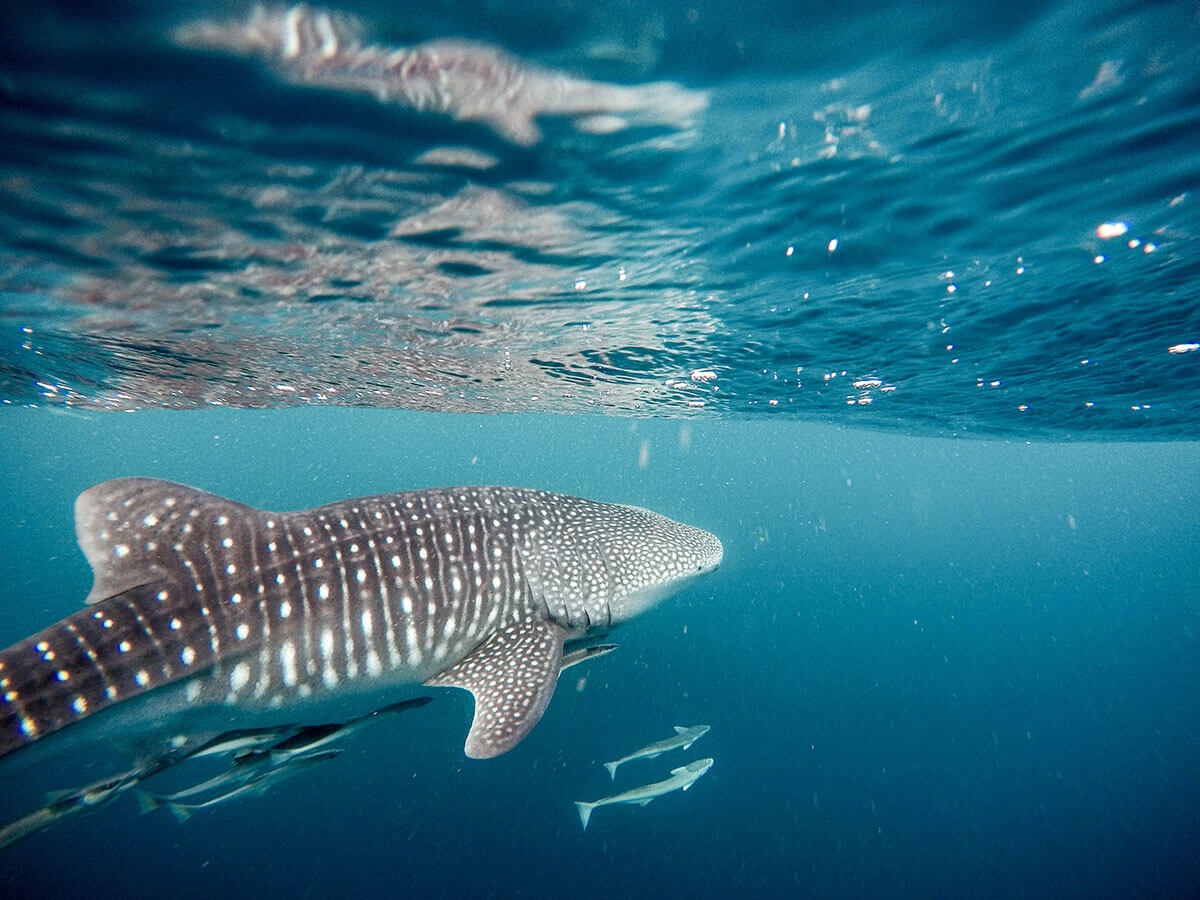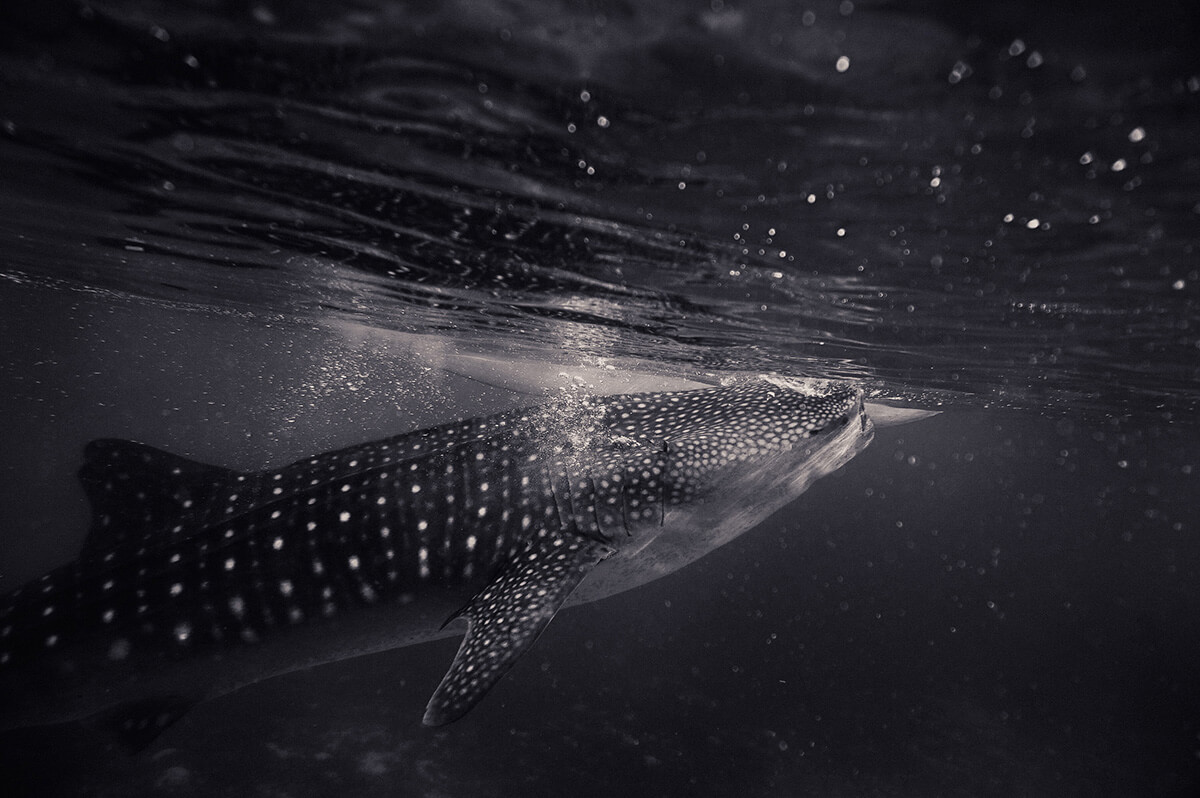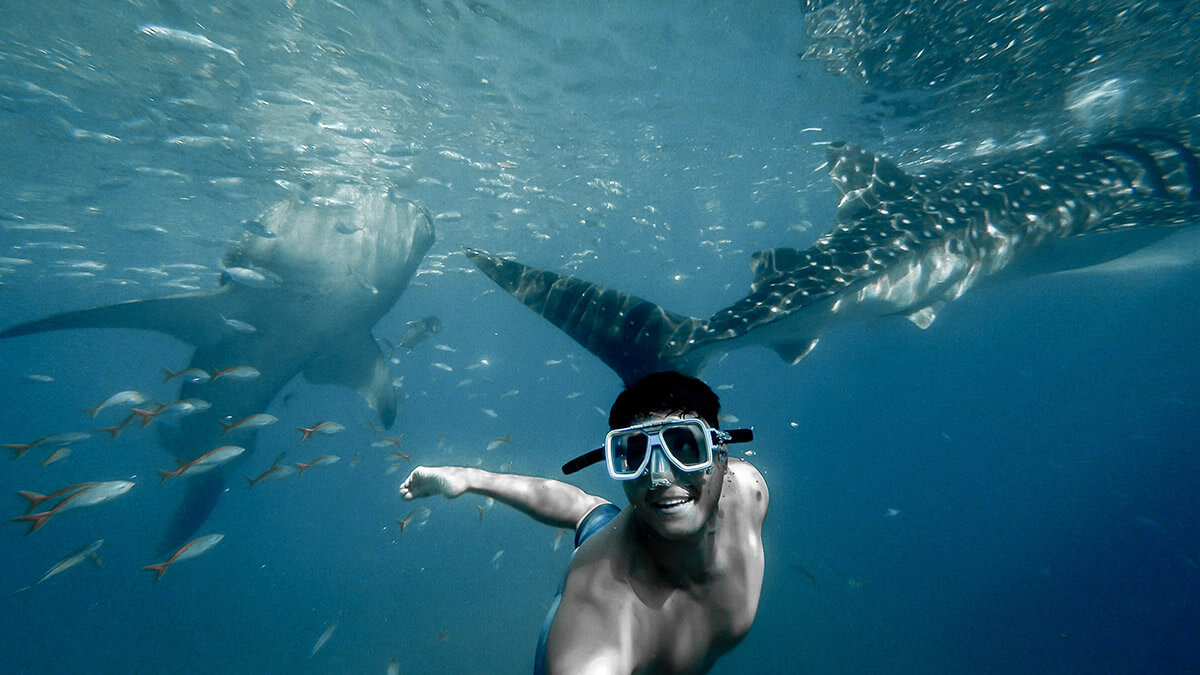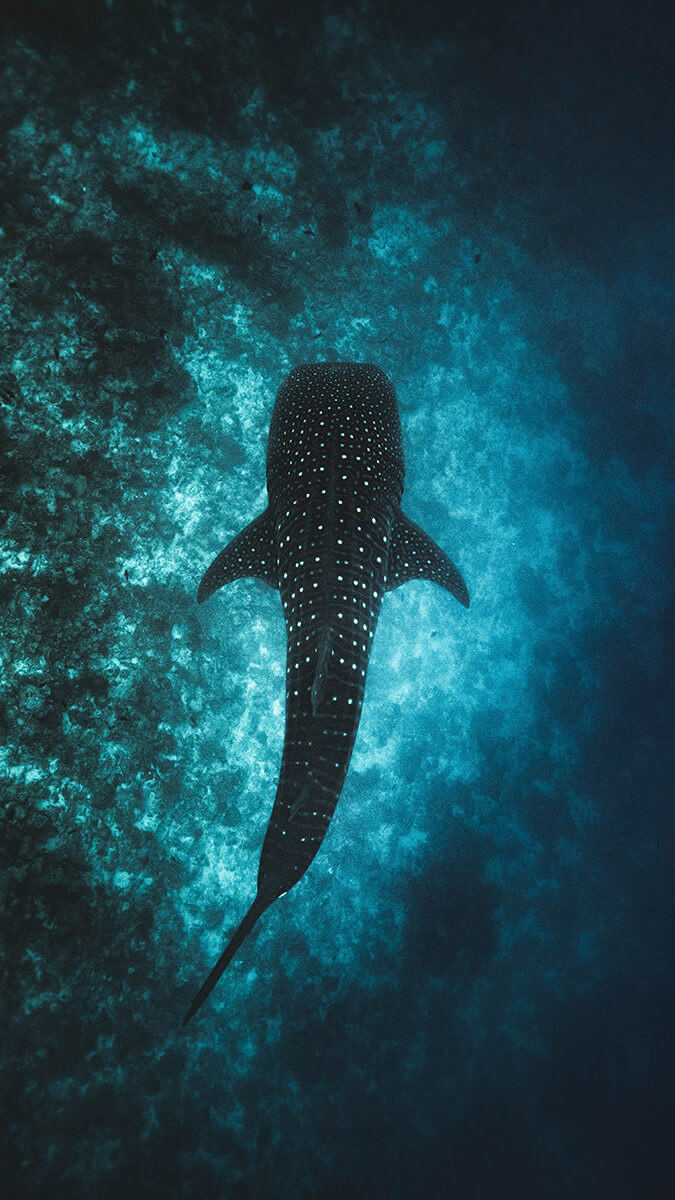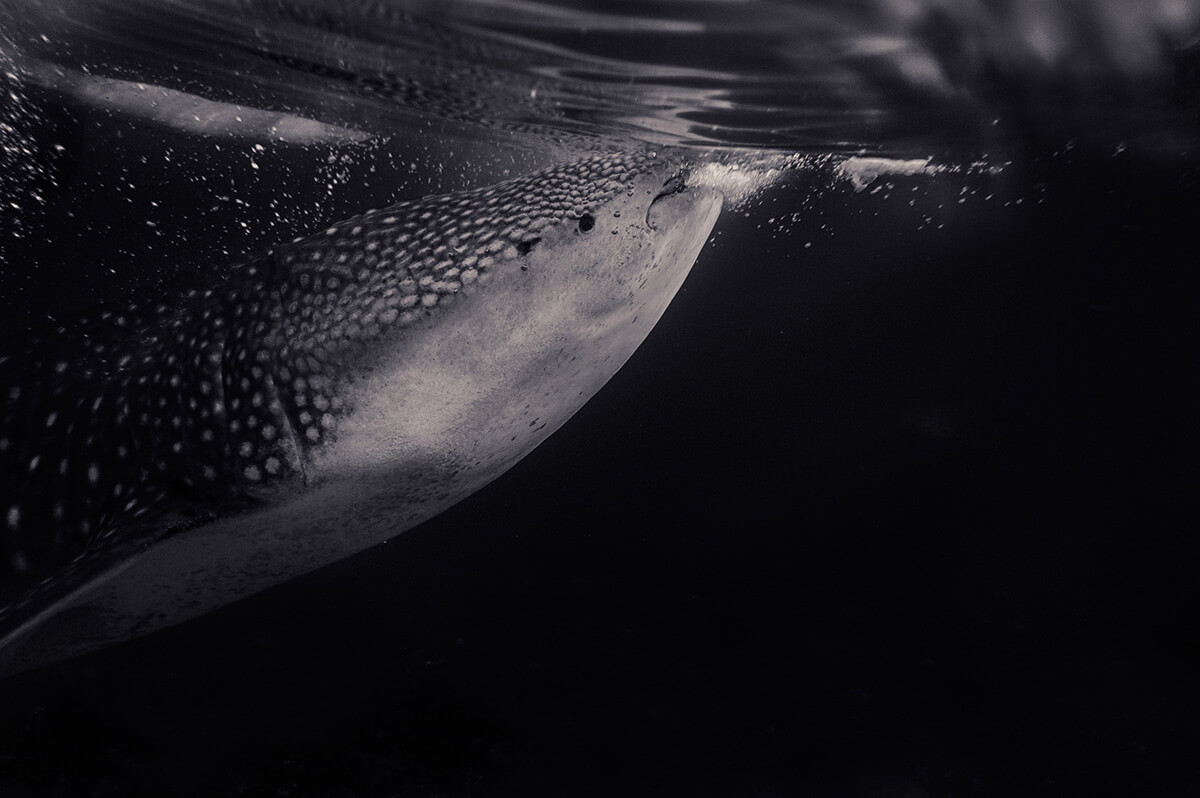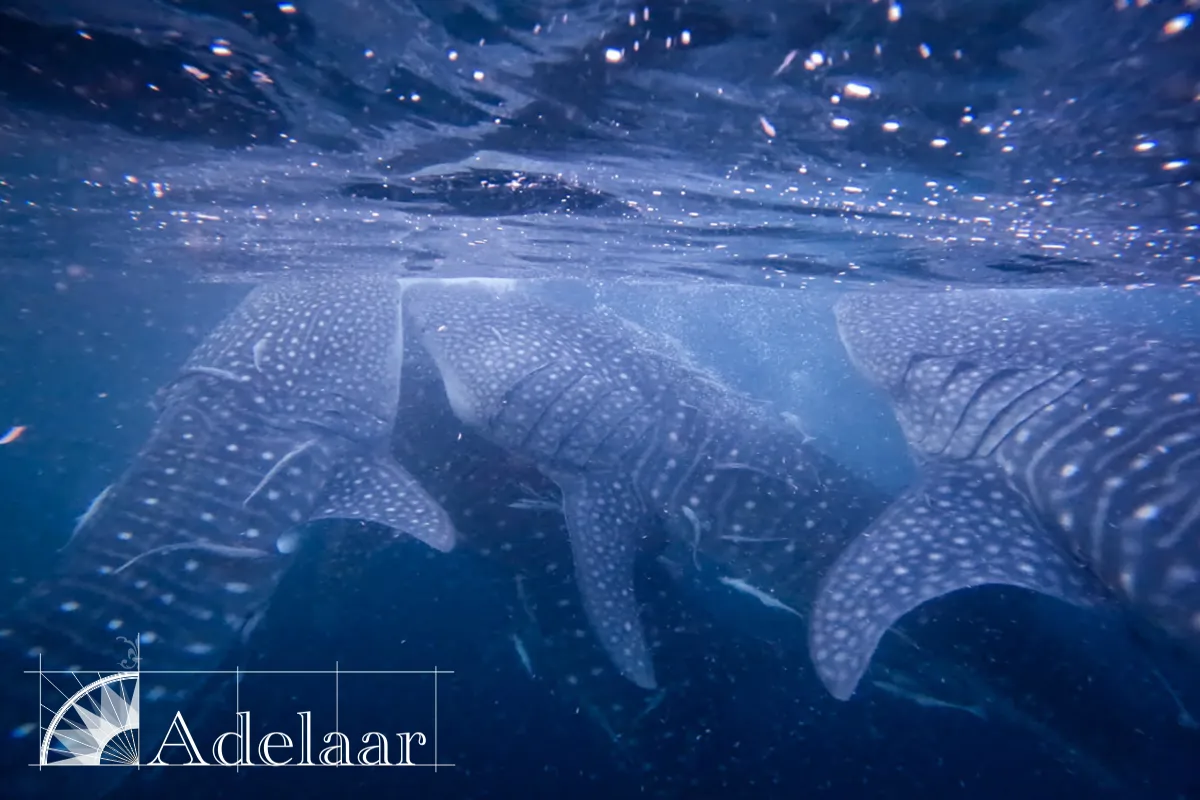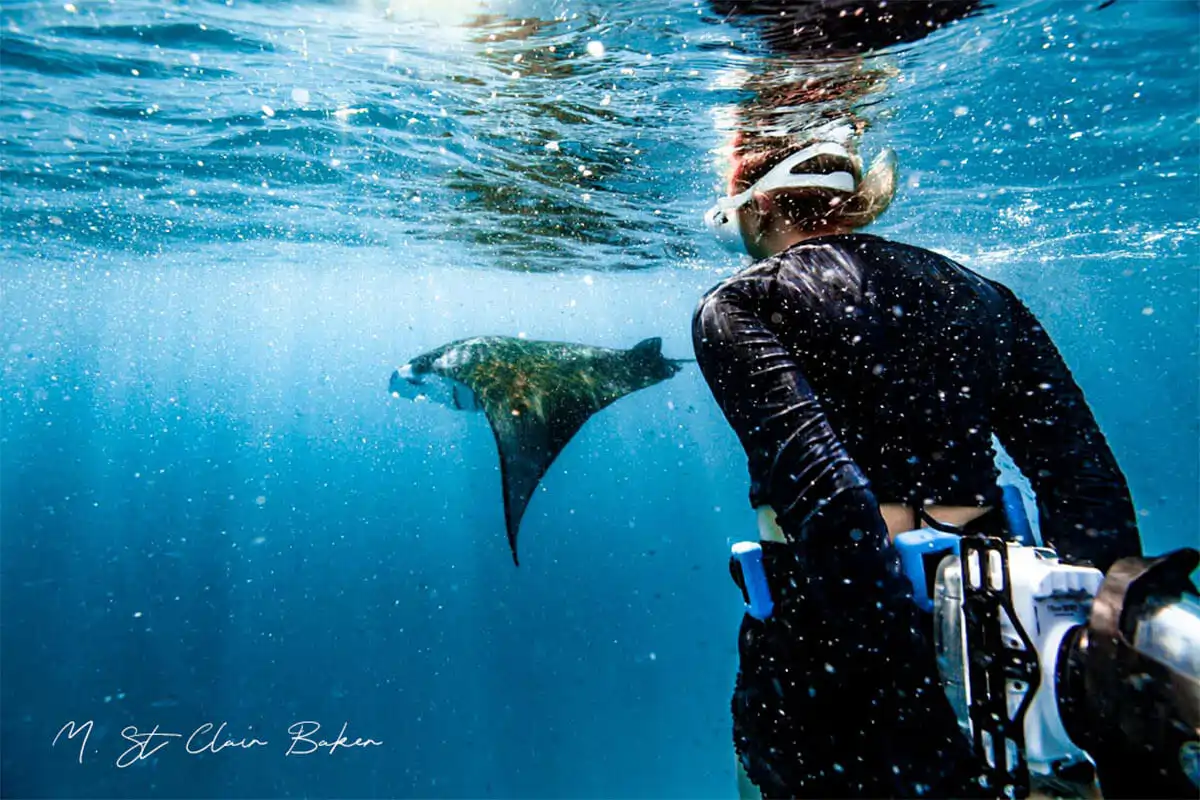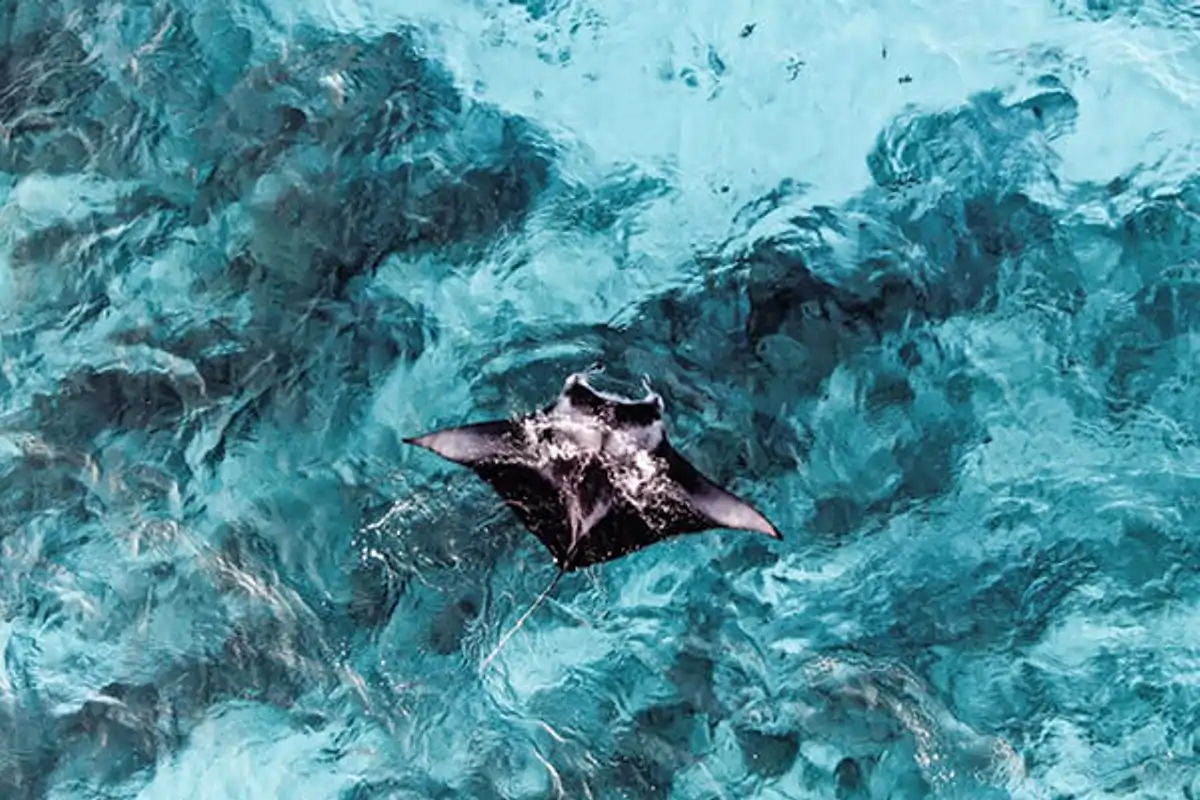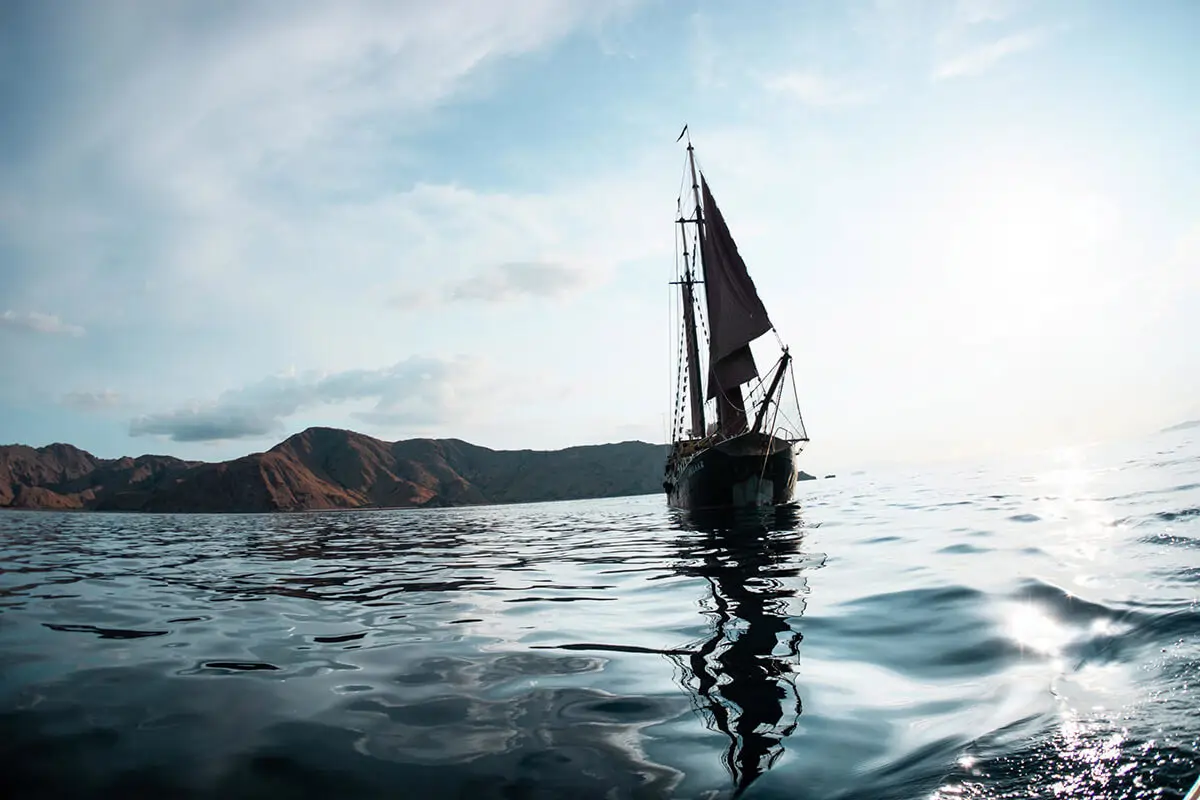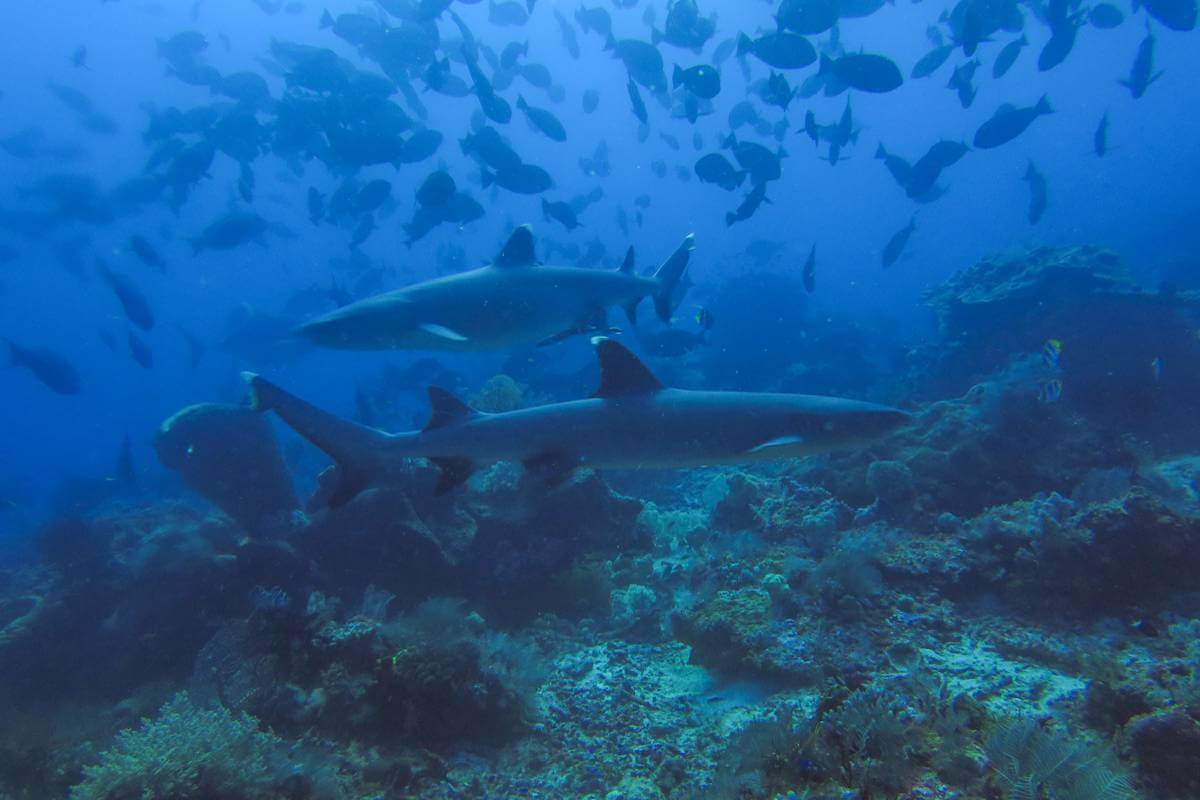“The first fundraiser dedicated to Whale Shark tagging in Indonesia”
Run by Adelaar for Conservation International – #GoTagMe
#GoTagMe
In collaboration with Conservation International, we now announce the launch of our Whale Shark fundraiser: #GoTagMe.
The money raised will be used to purchase tags & host a tagging operation of Indonesian Whale Sharks aboard Adelaar. The average cost of a tag is $6500, and all donors will be invited to follow this adventure with us. The first donation to this project was made in memory of Neal Baltz and his partner Patricia Beitzinger. Avid divers, anticipating a Christmas trip onboard Adelaar, Neal and Patricia tragically perished in the Conception fire three months prior to the trip. We dedicate this first tag to them, and we invite you to support our conservation project with a donation.
Maddie St Clair Baker, the Whale Shark project ambassador.
Mads is an MSc tropical marine biologist, dive-master and founder of non-profit organisation, Women in Ocean Science. Originally from the UK, her obsession with the enthralling world of coral reefs has taken her across the globe. From marine bioacoustics to mega-fauna, she has a diverse background in tropical marine research, with a particular focus on manta rays. Seeing the destruction of the marine environment first-hand, in recent years Mads has also transitioned from scientist to an ocean advocate. She has channeled her energy into becoming a freelance underwater photographer and content creator, to document the changing world through her media and apparel company, Blu Wild.
“No water, no life. No blue, no green.”
Sylvia Earle
FAQ
Why are Whale Sharks endangered?
The whale shark, like other shark and ray species, is a slow growing animal with low fecundity. Although not mainly hunted for their fins, in some parts of the world, whale sharks are still actively hunted by fishermen, for their meat. As they often aggregate at to feed at the surface, they are quite vulnerable to boat strikes and by-catch, resulting in injury or death. One of the most critical things about whale sharks is that there is very little knowledge of their biology and reproduction, which provides a huge challenge for us to properly protect them.
Why do we tag them?
How does it work?
Whale sharks often aggregate around “bagan” fishing vessels, attracted by the baitfish or mysid shrimps that the fishermen are targeting. As a result, some of the whale sharks are often accidentally trapped inside the fishing net. This unique opportunity allows us to get in the net with the whale shark to fix satellite tags directly into their dorsal fin. After released, whenever the dorsal fin breaches the surface of the water, the tag will send the collected data through satellite transmission for us to monitor, for up to 2 years of deployment.
What kind of data do we collect & how can it help the species?
The satellite tag mainly collects location data, but it also records depth and temperature. Through this data, we can see where whale sharks go and to what depth and what temperature, as well as the duration of the dive. Moreover, this data provides insight into their behavior and movement patterns. This is the basis for developing necessary regulations to ensure the sustainability of their population. By sharing the data in CI’s Whale Shark Tracker we increase the public awareness of whale shark conservation.
CI & Whale Shark project in motion
How do we tag Whale Sharks?
Sign up for our newsletter





